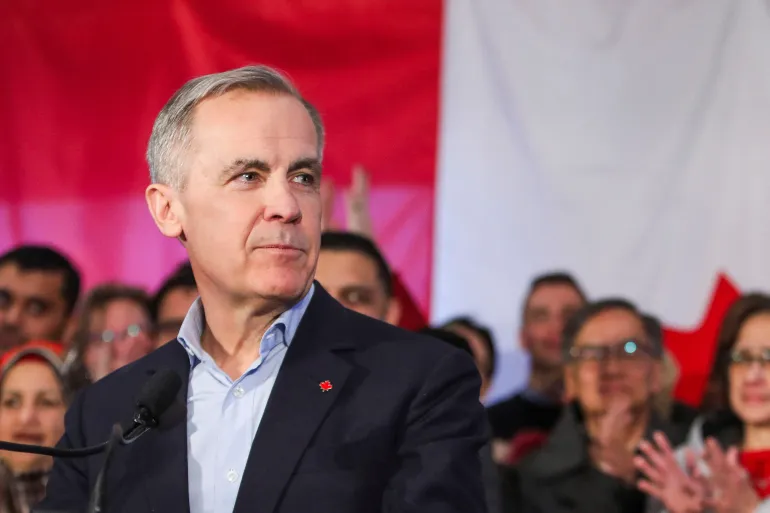Canadian Prime Minister Mark Carney has declared that the longstanding economic relationship between Canada and the United States, rooted in deep economic integration and strong security and military cooperation, is no longer valid. Speaking to reporters in Ottawa after a cabinet meeting, Carney emphasized the need for Canada to “fundamentally reimagine our economy” in response to U.S. President Donald Trump’s new tariffs.
In response to Trump’s decision to impose a 25% tariff on imported vehicles and vehicle parts, Carney said Canada would retaliate with tariffs of its own, aimed at having “maximum impact” on the U.S. The tariffs announced by Trump are set to be permanent and will begin affecting businesses starting on April 2, with taxes on parts expected to follow in May.
Carney, who leads the Liberal Party, called the original 1965 Canada-US Automotive Products Agreement the most important deal of his lifetime. “That’s finished with these tariffs,” he stated in French. While the tariffs present a challenge, Carney expressed confidence that Canada could sustain its auto industry if the government and business community collaborate to “reimagine” and “retool” the sector.
He also stressed the need for Canada to build an economy that is more under its control, suggesting that the country may need to rethink its trade relationships beyond the U.S. “It remains to be seen whether Canadians can have a strong trading relationship with the United States going forward,” Carney said.
In the wake of Trump’s announcement, the U.S. has already imposed a 25% tariff on Canadian goods, including aluminum and steel, with Canada retaliating with around C$60 billion ($42 billion) worth of tariffs on U.S. goods. The new vehicle tariffs are set to take effect on April 2.
Trump, meanwhile, issued a warning to Canada and the EU, threatening much larger tariffs if they unite against the U.S. in the trade dispute. On his Truth Social platform, Trump said, “If the European Union works with Canada in order to do economic harm to the USA, large scale Tariffs, far larger than currently planned, will be placed on them both.”
Carney, in his cabinet meeting, also confirmed that President Trump had reached out to schedule a call, which would be the first conversation between the two leaders. Carney had initially planned to campaign in Quebec but changed his schedule to focus on addressing the tariff situation. The Canadian general election is scheduled for April 28.
Opposition leaders in Canada have strongly criticized the new tariffs. Pierre Poilievre, leader of the Conservative Party, called the tariffs “unjustified and unprovoked,” while Jagmeet Singh, leader of the NDP, accused Trump of starting an “illegal trade war” with Canada. Singh also expressed concern for the impact on Canada’s auto workers, meeting with union leaders in Windsor, Ontario.
Meanwhile, in Mexico, President Claudia Sheinbaum refrained from commenting directly on the U.S. auto tariffs, but emphasized that her government would defend Mexican interests and fight to protect jobs and companies affected by the new trade measures.
The tariffs come as the U.S. imports about eight million cars annually, making up roughly half of overall car sales. The trade dispute between Canada, the U.S., and Mexico continues to unfold, with significant economic consequences for all parties involved.






